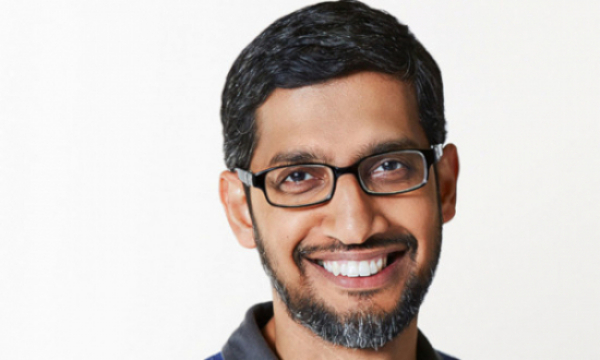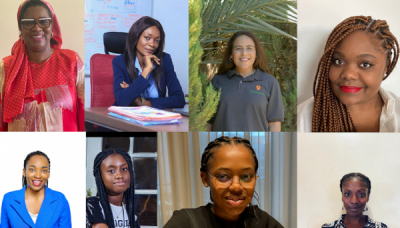
Tech (802)
Under the digitalization process it initiated in recent years, the Ghanaian government announced the launch of an electronic travel card for public officials and envoys.
According to Vice President Mahamudu Bawumia, who introduced it last February 4 at the closing ceremony of the Annual Conference of the Controller and Accountant General’s Department (CAGD) in Cape Coast, the new instrument aims to bring further transparency and accountability in the use of public funds.
“Since independence, public officials were provided cash for their impress when they travel. This system had many associated problems, including the risks of carrying cash and fraud in the disbursement of impress […] Today, that era is coming to an end with my launch of the e-Travel Card to facilitate the cashless disbursement of travel allowance and other payments for local and foreign trips of public officials,” he said.
The Vice President said the solution will eliminate the risk of carrying cash, enable the timely retirement of accountable impress, and ease improved monitoring and control of budgetary allocations for all official travel to avoid overspending. The e-travel card was developed in partnership with Fidelity Bank. It aligns with the government strategy in place since 2006 to improve governance and development through ICTs.
Adoni Conrad Quenum
Several African countries have taken on extra debt last year to improve their digital migration readiness. Investing in the right sectors is now the next important step to hit the target. To help the countries better identify the priority sectors and make the best choices in terms of investments, Sundar Pichai (pictured), Head of the US tech giant Google, suggests four steps to follow.
In an op-ed published yesterday February 7, he reported that Africa, like India a few years ago, has the potential to boost its development by investing smartly in ICTs. He says the continent is already on the right path as it enjoys a large, full-of-energy, and ICT-savvy youth.
The very first step, according to him, is to expand affordable and reliable connectivity across the continent. He believes that many Africans will be left out if they do not have access to connectivity. “We have seen during the pandemic that digital connectivity is a lifeline, helping people find essential information and connect to critical services,” he said.
He secondly suggests that governments and relevant authorities support businesses of all sizes in their digital migration processes so that the digital divide is closed. “Closing that gap means enabling businesses to move online, training more people to pursue careers that depend on technology, and ensuring that companies take advantage of cloud computing,” Sundar Pichai added, stressing that “companies should invest in products and solutions that are fit for Africa, and African governments need to adapt regulatory environments and their own development strategies to be digital-first. Small businesses need to be at the center of digitization and training efforts, as they employ around two-thirds of the continent’s formal workforce.”
A third step will be to invest in African entrepreneurs to stimulate innovation and growth. He finally called on African governments to support nonprofits and institutions striving to address communities’ challenges through technologies.
In 2021, Google made a $1 billion investment in Africa to back the continent's digital transformation. This comes in addition to several other investments made on the continent over the past four years by the company.
In its joint report with the International Finance Corporation (IFC), "e-Conomy Africa 2020 - Africa's $180 Billion Internet Economy Future," Google points out that Africa's Internet economy has the potential to grow to $180 billion, or about 5.2% of the continent's GDP, by 2025 with an economic potential of $712 billion by 2050.
Muriel Edjo
Barely two years after launching, Amitruck already has over 8,000 vehicles registered in its database, completed 100,000 deliveries, for more than 300 corporate clients.
Amitruck is a digital trucking logistics service launched in 2019 by the eponymous Kenyan startup. On February 2, 2022, the firm raised $4 million in seed funding. Led by Better Tomorrow Ventures (BTV), with participation from Dynamo Ventures, Rackhouse Venture Capital, Flexport Inc, Knuru Capital, Launch Africa Ventures, Uncovered Fund, and strategic angel investors, the round will allow Amitruck to speed up its expansion in Africa and hire new talent.
Founded by Mark Mwangi (picture), Amitruck connects businesses and individuals, who need to move their goods, with truck owners and logistics companies. Mwangi came up with the idea after realizing that the informal logistics sector, which uses archaic manual systems, was fragmenting and unnecessarily increasing operating costs.
By integrating new technologies in transit operations, the Kenyan founder aimed to modernize and make the sector safer in Kenya. Plus, the service dealt with the issue of middlemen who raise costs of services, enabling customers to deal directly with the selected carrier. All drivers and vehicles are checked, and goods in transit are insured against loss and damage to ensure safe operations.
Barely two years after launching, Amitruck already has over 8,000 vehicles registered in its database, completed 100,000 deliveries, for more than 300 corporate clients. To access the service, customers must first log in to the platform's web address or download the app from Play Store. Once that is done, they must create their account, which will be approved. With this account, users can book a truck, van, motorcycle, bicycle, among others, to transport their goods. Once validated and initiated, users can track their goods as they move. Payment is made only after goods are delivered and the client is satisfied.
The startup - which joined, in 2021, the Ninja Accelerator program of the Japan International Cooperation Agency (JICA), Google’s Black Founders Fund Accelerator, and AbInbev's Budstart Accelerator program - wants to "attract more carriers and shippers" in 2022.
Muriel Edjo
They are among the 19 finalists picked, out of 300 applications, for the 10th edition of the Les Margaret Awards by JFD (Journée de la femme digitale), a movement that promotes innovation by women. There are eight of them listed in the Entrepreneur, Intrapreneur, and Junior categories for Africa.
JFD will reveal the laureates of its 10th Les Margaret Awards on February 10, 2022, at La Sorbonne, Paris. The African finalists include an Egyptian, a Ugandan, a Senegalese, an Ivorian, two Gabonese, a Kenyan, and a South African in the three categories mentioned above.
Entrepreneur
- Farah Emara, from Egypt, runs for the awards with FreshSource, an agricultural platform that connects farms to businesses and provides last-mile solutions. With it, she wants to rationalize the fresh produce value, empower farmers, and cut food waste.
- Shamim Nabuuma Kaliisa, from Uganda, founded Chil AI Lab, a startup that uses artificial intelligence and machine learning to expand essential health services to the poor and marginalized, women especially, in her country.
- Ariane Akeret, from Gabon, runs as a finalist with her CaPay project. CaPay is an App that facilitates the payment of salaries, amongst other financial transactions, via mobile money. This digital payment solution targets employees, retirees, workers with no bank account, social security funds, organizations, associations, and public administrations.
Intrapreneur
- Adjaratou Wakha Aidara, from Senegal, is executive director at Partners West Africa-Senegal. She has developed a clean, safe, sustainable, and connected mobility project with motorbike taxis.
- Patricia Ndikumana, from Kenya, head of partnerships at Sokowatch, an e-commerce platform whose goal is to help informal retailers easily secure essential goods, without relying on wholesalers or banks.
- Ivoirian Cleo Ngokoudi is the CFO of Anka, a platform that provides local merchants with integrated digital management solutions, and facilitates international financial transactions.
Junior
- Maylis Kouakoua, 13, is from Gabon. She developed Scratch, a quiz-based game to raise teenagers' awareness about the internet’s dangers, cyber-bullying notably.
- Malebina Tsotsotso, 15, is from South Africa. She built MTutor, an e-learning platform designed to provide an adaptable, scalable, safe, and secure learning tool.
According to Delphine Remy-Boutang, CEO of the Bureau & JFD, the projects selected were the best out of hundreds. “We received over 300 applications. This is a unique opportunity to bring out our future European and African tech champions. All their projects address major societal issues.”
She then stressed the need to “direct more investment towards female entrepreneurship, which also provides solutions to digital transformation by putting it at the service of our societies and the environment.”
For this year’s edition, the vote of the general public will count for one. Launched in 2013 by JFD, Les Margaret Awards rewards female entrepreneurs and intrapreneurs, in Europe and Africa, every year. The laureates’ projects are innovative and address major social issues. The Awards is named after Margaret Hamilton, former director of the Software Engineering Division of the MIT Instrumentation Laboratory, which developed on-board flight software for NASA's Apollo program.
Brice Gotoa





